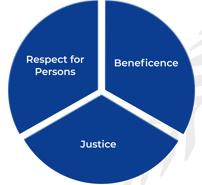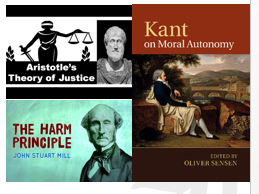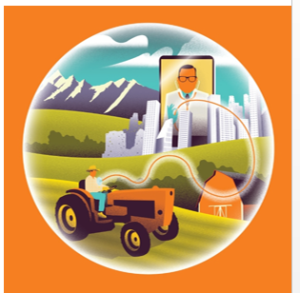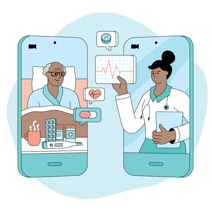Week 8: Course Project – Presentation
February 22, 2023
Strongest Ethical Values
(Week 8: Course Project – Presentation)

- My strongest ethical values include respect of persons, beneficence, and justice.
- Respect of persons has two distinct moral requirements:
1.Acknowledging autonomy.
2.Protecting individuals with diminished autonomy
- Beneficence requires people to be treated with respect and secure their well-being.
- It has two general rules, including:
1.Do not harm
2.Maximize potential benefits and reduce potential harm
- Justice requires equal and fair share and treatment
Philosophers with the Greatest Influence

- I am intrigued by the works of Aristotle, Immanuel Kant, John Stuart Mill.
- These philosophers emphasize humans as rational and autonomous beings.
- Medical ethics are attributed to them (Cohen-Almagor, 2017).
- Kant and JS Mill developed the concept of autonomy.
- Kant’s influenced concepts of dignity, benevolence, and beneficence (Cohen-Almagor, 2017).
- Mill’s Harm principle is now called nonmaleficence.
- Aristotle contributed to the concepts of justice and responsibility.
- (Week 8: Course Project – Presentation)
Respect for Patient Autonomy, Privacy, and Confidentiality and Data Security
- RPM jeopardizes patient autonomy, privacy, confidentiality and data security.
- Patients, especially older adults, experience challenges retaining control over access to their personal information and health records (Solimini et al., 2021).
- RPM risks and benefits are often not shared with patients.
- Data sharing using digital devices and network increases risk of cyber theft.
- Older adults have limited knowledge of using digital devices, increasing the risk of data loss (Solimini et al., 2021).
(Week 8: Course Project – Presentation)
Equitable Access

- RPM is not equally accessible by all populations (Solimini et al., 2021).
- RPM requires using digital devices and reliable internet.
- These factors are limited in marginal, remote, and rural areas (Solimini et al., 2021).
- Low income earners struggle to afford RPM equipment and reliable internet connectivity.
- RPM access is limited to older adults due to technological illiteracy.
- Ethnic and racial minorities report limited access to reliable internet connectivity.
(Week 8: Course Project – Presentation)
Professional-Patient Relationships

- RPM reduces in-person or face-to-face patient visits.
- Face-to-face patient encounters have more therapeutic value (Mehta, 2018).
- Face-to-face encounters have been the longstanding promise of provider-patient interactions.
- The reduced or loss of this physical encounter diminishes the therapeutic value, negatively impacting provider-patient relationships.
- Currently, RPM is limited to patients with preexisting relationships with a provider.
(Week 8: Course Project – Presentation)
Recommendations to Address First Ethical Concern
- Enhance patient autonomy by:
1.Sharing RPM risk and benefits with patients
2.Enhancing clinical competence in RPM practice
3.Establishing participative decision-making
4.Improving decision-making competence (Mehta, 2018)
- Develop robust patient privacy and data security plan and protocol, including HIPAA rules.
- Adopt data encryption and multi-factor authentication (Jalali et al., 2021).
- Train and educate providers and patients on proper use of RPM systems.
- Securing wireless networks and messaging systems (Jalali et al., 2021).
(Week 8: Course Project – Presentation)
Recommendations to Address Second Ethical Concern
- Local and federal governments to extend reliable internet connectivity to rural and remote areas.
- Offer financial aid to struggling populations to help acquire RPM equipment.
- Increase grants to non-profit organizations helping vulnerable people acquire RPM equipment.
- Organizations include American Medical Resource Foundation, MedShare, and Project CURE.
- Increase insurance coverage of RPM services.
(Week 8: Course Project – Presentation)
Recommendations to enhance Provider-Patient Relationships
- Ensure RPM and traditional approaches complement rather than compete.
- Engage patients to determine which visits are better in-person or remote.
- Minimize distance between providers and patients (Mehta, 2018).
- Promote multi-channel communication, including text and instant messages and e-mail.
- Engage in more information sharing and positive feedback.
- Promote inclusive decision-making and patient engagement in care coordination.
(Week 8: Course Project – Presentation)
Conclusion
- RPM presents multiple opportunities to improve healthcare delivery (Mantena & Keshavjee, 2021). .
- However, it poses ethical dilemmas that need addressing.
- The future of RPM and widespread adoption relies on effective addressing of:
1.RPM threat to patient autonomy, privacy, confidentiality, and data security.
2.RPM’s lack of equitable access.
3.RPM’s erosion of therapeutic provider-patient relationships
- It will ensure that patients are more comfortable with electronic communication and virtual services.
(Week 8: Course Project – Presentation)
References
- Cohen-Almagor, R. (2017). On the philosophical foundations of medical ethics: Aristotle, Kant, JS Mill and Rawls. Ethics, Medicine and Public Health, 3(4), 436-444. https://www.sciencedirect.com/science/article/abs/pii/S2352552517301706
- Jalali, M. S., Landman, A., & Gordon, W. J. (2021). Telemedicine, privacy, and information security in the age of COVID-19. Journal of the American Medical Informatics Association : JAMIA, 28(3), 671–672. https://doi.org/10.1093/jamia/ocaa310
- Mantena, S., & Keshavjee, S. (2021). Strengthening healthcare delivery with remote patient monitoring in the time of COVID-19. BMJ health & care informatics, 28(1), e100302. https://doi.org/10.1136/bmjhci-2020-100302
- Mehta, S. J. (2018). Telemedicine’s potential ethical pitfalls. AMA Journal of Ethics, 16(12), 1014-1017.
- Solimini, R., Busardò, F. P., Gibelli, F., Sirignano, A., & Ricci, G. (2021). Ethical and Legal Challenges of Telemedicine in the Era of the COVID-19 Pandemic. Medicina (Kaunas, Lithuania), 57(12), 1314. https://doi.org/10.3390/medicina57121314


